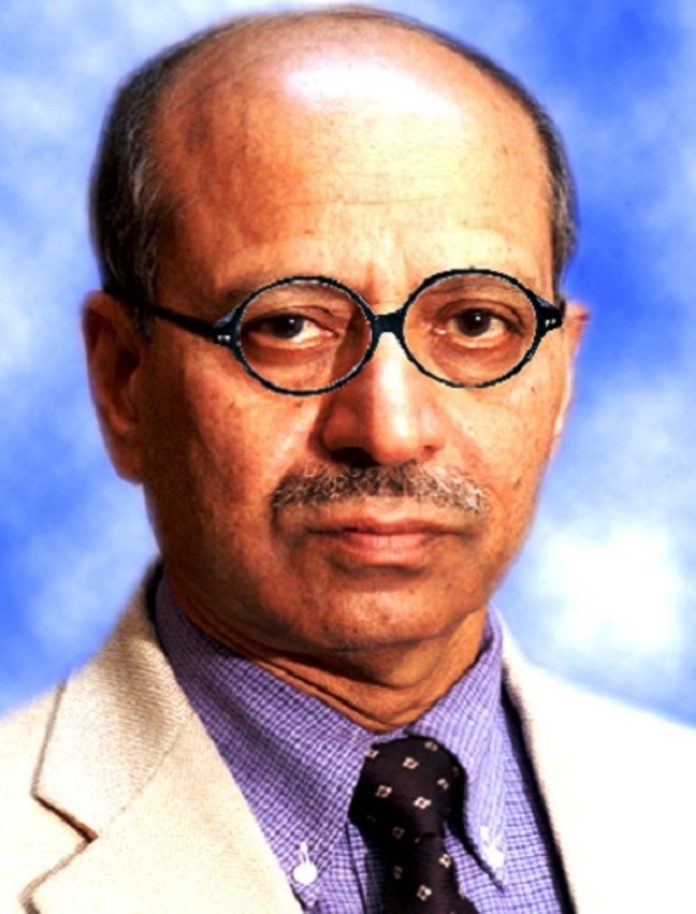By Naved Masood
What was apprehended for the last couple of days came to pass last evening; Mehmood ur Rehman Sahib (1942- 2017) completed the journey of his life which was marked by constant struggles and a never-say-die attitude.
He had his University education in Allahabad, where briefly taught in the Department of Persian followed by few months’ stints in the Life Insurance Corporation and the Provincial Civil Service before joining the Indian Administrative Service in 1966 and being assigned Jammu and Kashmir cadre. In J&K he served in various capacities till 1995 before moving over to the Aligarh Muslim University as Vice Chancellor, a position he held till July 2000. He retired as Secretary Ministry of Parliamentary Affairs in the Government of India and retired from that position in March 2002 only to continue his active engagement with public affairs as Chairman (first Executive and then non Executive) of the Bombay Mercantile Cooperative Bank (BMC) till fairly recently.
His tenures in important positions be it as Principal Secretary ( later Additional Chief Secretary), Home Department in J&K or VC AMU or with the BMC were marked by crises which he dealt with determination and generally on his own terms. His contributions (and failures) were many but no one can deny that in success and adversity he remained in command and did not lose his aplomb. His signal contribution in the AMU was the relentless determination with which he worked towards freeing University land under unauthorised occupation and in that respect he succeeded where most Vice Chancellors in most of the older Universities had very limited success. His innings with the BMC could be regarded as a mixed bag given the murky, almost sectarian atmosphere of the organisation, but there is no doubt that if he had not come at the helm of its affairs when he did, it would have been liquidated by the Reserve Bank.
For the most part my contacts with Mehmood Sahib were professional as during the first three years of his tenure in the AMU I headed the University and Higher Education Bureau in the Ministry of HRD and was the Central Government’s major contact point with the University till I moved over to the state of J&K on deputation. As it happened, in three months or so that he spent with the state government during his tenures with the AMU and the Ministry of Parliamentary Affairs he was ‘attached’ with the organisation of the Resident Commissioner of the State in Delhi which happened to be within the remit of my responsibilities as Commissioner cum Secretary, General Administration Department.
During these periods I had occasion to watch his professional side and personality to the extent it reflected in performance of his duties. The abiding impression of this fairly intense association is of a person who was clear headed about his objectives, who could tire down the opposition with his persistence without being rude or boorish. His capacity for hard work and putting in long hours was phenomenal. His one disarming quality was to avoid unnecessary arguments by deflecting the opponent with anecdotes and digressions in a tactful manner which would not give offence to the other side.
He enjoyed power and liked a few people to hang around which is not uncommon among people who control, or are near, the levers of powers. However, unlike many with these traits he did not lose his sense of proportion and would be fairly objective in assessment of his acolytes when called upon to judge them. We had our differences of opinion, a few fairly significant, but if this did not affect mutual cordiality, I will give him the larger share for the spirit of amity.
He had a major neurological deficit last year and was on ventilatory support for a few days. The tenacious fighter that he was, he bounced back against heavy odds and in several conversations over the phone though his voice was weak, he was his ebullient self. It was during the wedding of my colleague Asif Ibrahim’s daughter a few months back that I came face to face with him and realised that though the spirit was high the body was not keeping pace. To my regret this was our last meeting though one could have met him during frequent visits to Mumbai. Possibly, he needed company of people with whom he could recount old campaigns valiantly waged unmindful of the outcomes.
This short tribute could be rounded off by the perceptive observation of one of his old associates from Kashmir who spoke to me earlier today. He said there are many people who turn out to be larger than life, most in that category act the role for effect and clearly come out as humbugs; there are a few to whom this is a natural modus vivendi – they are ‘natural’ when acting thus and are likeable for this reason. That was Mehmood Sahib for you.


